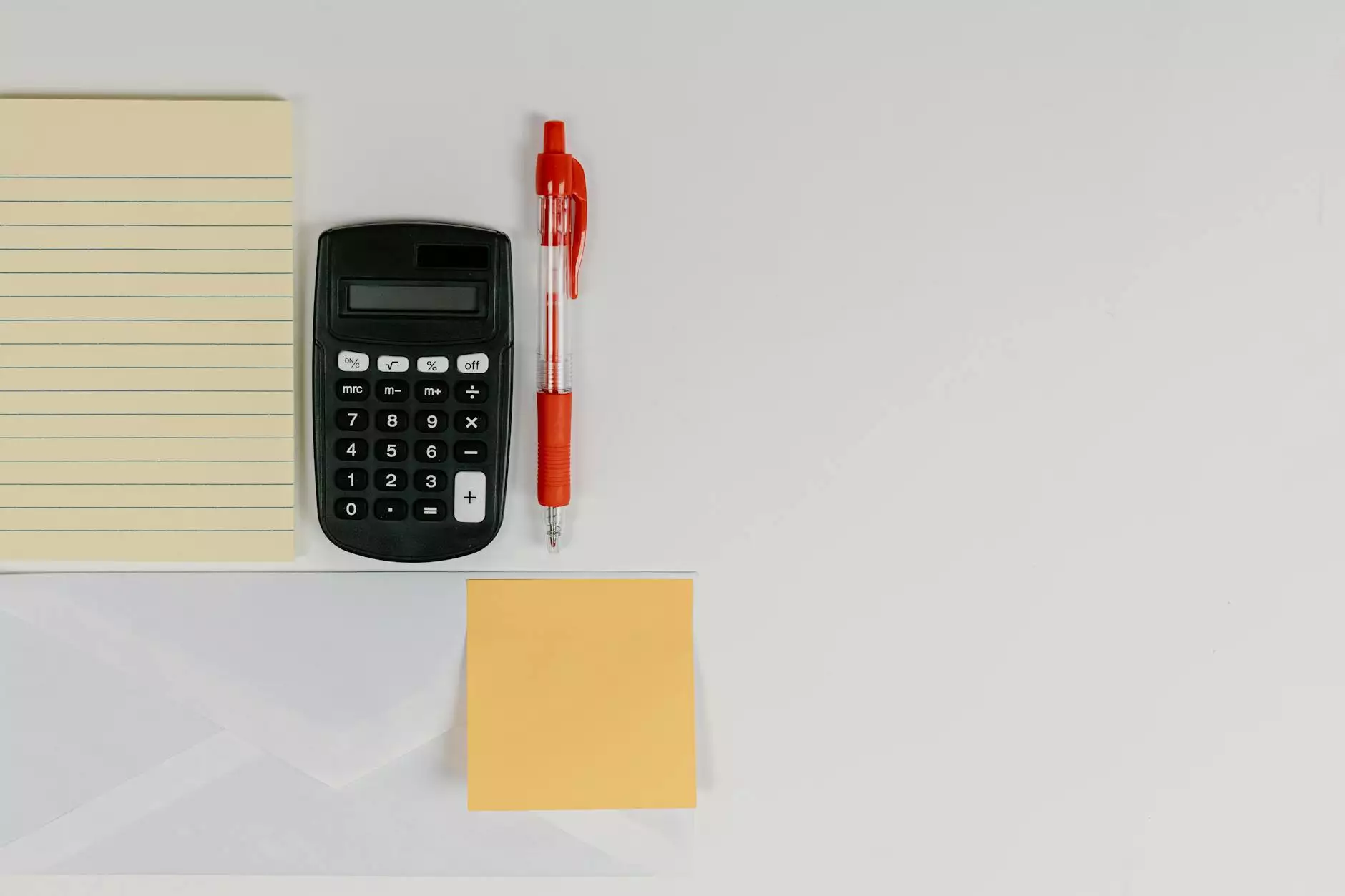How Long to Keep Tax Records: An In-Depth Guide

When it comes to managing your finances and tax obligations, understanding how long to keep tax records is crucial. Properly maintaining tax records not only helps you stay organized but also ensures that you comply with federal and state regulations. In this guide, we'll explore why record-keeping is vital, how long different types of records should be retained, and best practices for organizing and storing your documents.
Why Keeping Tax Records is Essential
Keeping tax records is more than just a best practice; it's a requirement that can save you from future headaches. Here are several key reasons why effective tax record-keeping is essential:
- Compliance with Tax Regulations: The IRS and state tax agencies expect taxpayers to produce documentation for their claims and deductions.
- Audit Protection: Should you be audited, having detailed records can substantiate your income and deductions.
- Financial Management: Keeping records helps you understand your financial situation over time and can assist in budgeting and financial planning.
- Maximizing Deductions: Well-maintained records ensure you don’t miss out on potential deductions that can reduce your tax burden.
The IRS Guidelines on Record Retention
The IRS outlines specific guidelines regarding how long to keep tax records. Generally, the rule of thumb is that you should keep records for at least three years. However, certain situations may require you to retain documents for longer. Let's break it down:
1. Basic Rule: Three Years
You must keep records for three years from the date you filed your return or the due date of your return, whichever is later. This includes:
- W-2 forms
- 1099 forms
- Receipts and invoices
- Bank statements
- Proof of payments for expenses
2. When in Doubt: Six Years
If you underreport your income by more than 25%, the IRS can extend the record retention period to six years. This includes:
- Documents showing your income
- Investment records
3. Special Circumstances: Indefinitely
Some records need to be held indefinitely, especially if they pertain to property or long-term capital assets. In these cases, keep records until you dispose of the property. Examples include:
- Real estate ownership documentation
- Records related to the acquisition of stocks and bonds
- Depreciation schedules
State Tax Records
In addition to federal guidelines, you must consider state tax record requirements. States may have different rules regarding how long to keep tax records, which can vary from three years to six years or more. It's important to check with your state's tax authority to ensure compliance.
Best Practices for Record Keeping
Now that you understand the timelines for keeping records, let’s discuss some best practices for effective record-keeping:
1. Organize Your Records
Use folders and labels to categorize your records by year and type. This can include:
- Income records
- Deductions and credits
- Expenses
2. Digital vs. Paper Records
Decide whether you prefer to keep paper records or digital copies. Digital records are generally easier to manage and store, and can be backed up for extra security. Use a reliable cloud storage solution or external hard drive to keep your digital records safe.
3. Regular Review and Updates
Set a schedule to regularly review and update your records. This can help you identify missing documents and ensure everything is in order before tax season.
4. Use Accounting Software
Consider using accounting software that can simplify the record-keeping process. Many programs allow you to link your bank accounts and automatically categorize transactions, making it easier to keep track of your finances year-round.
Conclusion
Understanding how long to keep tax records is essential for anyone dealing with taxes, whether you are an individual taxpayer or a business owner. By following the IRS guidelines and implementing effective record-keeping practices, you can ensure you are prepared for any audit, maximize your deductions, and maintain financial integrity. Don't underestimate the importance of staying organized—your future self will thank you!
For further assistance and expert guidance, consider reaching out to a financial services professional or accountant. If you're looking for reliable tax services, visit us at Tax Accountant IDM for personalized support tailored to your needs.









